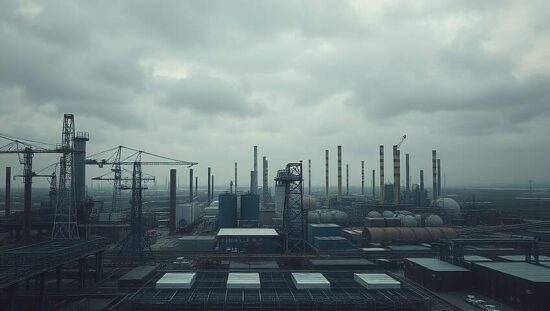The German industrial sector is facing a “very serious situation” according to Michael Vassiliadis, leader of the IG BCE trade union, representing mining, chemicals and energy workers. Vassiliadis cautioned against further job losses, stating that difficult times are already a reality for numerous industries. Significant workforce reductions, amounting to around 40,000 jobs, are already planned for the coming years.
Vassiliadis attributes the current crisis to a combination of geopolitical tensions, notably the perceived unreliability of the United States in trade relations and what he describes as internal European issues. He stated that the era of Germany benefiting from a free trade order as the world’s export champion is over, highlighting a need for Europe to prioritize its internal market and reassess its approach.
The trade union leader also expressed concern regarding recent announcements by U.S. President Donald Trump, specifically the proposal for 100 percent import tariffs on pharmaceuticals. This action places considerable pressure on the closely integrated German and European industries, potentially leading to shifts in production to the United States. Vassiliadis criticized the use of trade policy as a tool for pursuing interests and urged a more assertive European stance toward Washington.
Alongside these concerns, Vassiliadis emphasized the importance of a streamlined and cost-effective transformation, particularly in the area of the energy transition, to mitigate further job losses. While acknowledging the recent release of a monitoring report on the energy transition as a valuable basis for discussion, he called for greater openness in debating both progress and challenges.
Despite the seriousness of the situation, Vassiliadis maintains a cautiously optimistic outlook. He believes there is a path forward, although its realization remains uncertain. The German industrial sector is confronting substantial challenges, but opportunities exist if meaningful reforms are decisively implemented.





